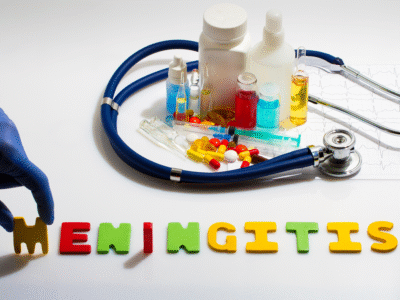Can Meningitis Be Caused by Medical Malpractice?

Meningitis is a serious disease that can have devastating consequences, particularly when it isn’t properly diagnosed and treated right away. Unfortunately, infants and young children are most susceptible to this horrible disease.
Patients with meningitis need to receive the correct diagnosis; otherwise, their symptoms are much more likely to escalate, causing catastrophic outcomes such as seizures, coma, and fatalities. And if hospitals and emergency room staff fail to follow the standard protocols for diagnosing meningitis, it could be medical malpractice.
If you suspect that your loved one was injured by medical malpractice, an experienced Atlanta personal injury lawyer can review your situation and advise you on the best way to move forward with your case.
What is Meningitis?
Meningitis is an inflammation of the protective membranes covering the brain and spinal cord, known as the meninges. Meningitis can be caused by various pathogens, including bacteria, viruses, fungi, and parasites. Viral meningitis is the most commonly contracted form in the United States. All types of meningitis can lead to serious long-term health complications.
- In adults, common symptoms of meningitis include severe headaches, high fevers, stiff necks, and sensitivity to light. Additional symptoms may include nausea, vomiting, confusion, and drowsiness.
- In infants and young children, the signs of meningitis may include irritability, difficulty feeding, disrupted sleep, rash, and lethargic behavior.
Importance of Early Diagnosis and Not Delaying Treatment
Early diagnosis of meningitis is crucial for providing effective treatment and improving patient outcomes. Misdiagnosis or delayed diagnosis can lead to rapid progression, resulting in severe complications such as brain damage, hearing loss, or even death. Early symptoms of meningitis can be similar to less severe illnesses like the flu, and that’s why it’s so important for medical professionals to provide the right diagnosis.
A timely and accurate diagnosis allows healthcare providers to administer appropriate treatments, such as antibiotics for bacterial meningitis or antiviral medications for viral forms. This early intervention can significantly reduce the risk of long-term neurological damage.
Misdiagnosis and delayed treatment can have devastating consequences, particularly for vulnerable populations such as infants, the elderly, and immunocompromised individuals. It’s crucial for healthcare providers to use standard diagnostic methods promptly to confirm the presence of meningitis and determine its cause.
Diagnosing meningitis typically involves a combination of clinical evaluation and laboratory tests. One of the primary diagnostic methods is a lumbar puncture, also known as a spinal tap, where cerebrospinal fluid (CSF) is collected from the lower back. The CSF is then analyzed for signs of infection, such as elevated white blood cell count, increased protein levels, and reduced glucose levels.
Blood cultures are essential for identifying the presence of bacteria or viruses in the bloodstream. Additionally, imaging studies like MRI or CT scans may be used to detect inflammation or complications affecting the brain and spinal cord. Rapid diagnostic tests such as PCR (polymerase chain reaction) are also used to detect genetic material from pathogens to provide faster results.
Some medical facilities may lack immediate access to advanced diagnostic tools like PCR testing, leading to delays in identifying the pathogen responsible. Misinterpretation of imaging results or CSF analysis is another factor that can lead to an incorrect diagnosis. False negatives in initial tests may also occur, and repeated testing and continuous monitoring may be necessary in this situation.
The Link Between Medical Malpractice and Meningitis
Failure to diagnose meningitis promptly can have devastating consequences. In medical malpractice cases, this failure may occur due to several factors, including misinterpreting symptoms, inadequate diagnostic testing, or delays in treatment initiation. Healthcare providers may overlook early signs of meningitis, attributing them to less severe illnesses.
Following standard emergency room protocols is vital for the timely and accurate diagnosis of meningitis. When someone suffering from meningitis arrives at the hospital or emergency room, healthcare professionals must immediately begin to assess the patient’s symptoms.
Contact Our Atlanta Meningitis Malpractice Lawyers to Win
The experienced trial attorneys at Grant Law Office have been helping people in Atlanta for over 30 years. Wayne Grant is proud to be among the top 5 percent of attorneys in Georgia as chosen by his peers through independent research conducted by Super Lawyers. Wayne has also been selected as one of The Best Lawyers in America for Personal Injury Litigation by Best Lawyers.
Call (404) 995-3955 to schedule a free case review today with one of our medical malpractice attorneys in Atlanta. We will investigate the treatment that your loved one received and file a claim or lawsuit against anyone whose negligent actions contributed to their injuries.
Contact us today for a free and comprehensive case evaluation.
We require no legal retainer or upfront fees,
and you pay nothing unless we prevail.
Phone: (404) 995-3955




